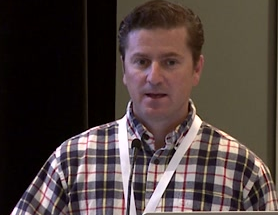CppCon 2014 Embarcadero Case Study: Bringing CLANG/LLVM To Windows--John "JT" Thomas
 Have you registered for CppCon 2015 in September? Don’t delay – Registration is open now.
Have you registered for CppCon 2015 in September? Don’t delay – Registration is open now.
While we wait for this year’s event, we’re featuring videos of some of the 100+ talks from CppCon 2014 for you to enjoy. Here is today’s feature:
Embarcadero Case Study: Bringing CLANG/LLVM To Windows
by John "JT" Thomas
Summary of the talk:
CLANG/LLVM delivers a highly conforming C++ compiler and architecture for targeting multiple CPUs, and, as such, has seen success in iOS and other operating systems. Embarcadero has successfully delivered the first commercial compiler for Windows based on CLANG/LLVM. This session describes the benefits of CLANG/LLVM as well as the challenges in bringing it to the Windows operating system. Particular emphasis is placed on the managing the changes in CLANG as well as the additional features added to enable Windows development.

 Have you registered for CppCon 2015 in September? Don’t delay –
Have you registered for CppCon 2015 in September? Don’t delay –